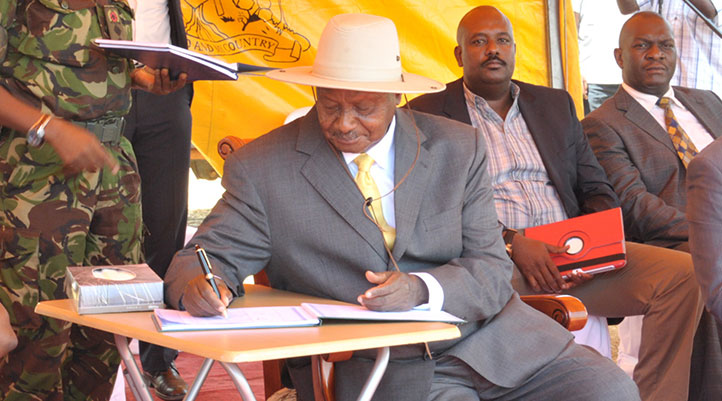Parliament has passed the Landlord and Tenants bill, 2021 that permits the landlords to access the tenants’ premises and take possession of the property to recover accumulated rent arrears.
This has however, been conditioned on the landlord issuing a notice to the tenants who default on rental payment.
The bill was signed into law by President Yoweri Museveni on April 22, 2022.
“Provided that where the default shall continue for a period of more than 30 days, the landlord shall be entitled to re-enter the premises and take possession thereof, in the presence of the area local council officials and the Police, without prejudice to the right to recover the rent arrears,” the law states.
The law intends to regulate the relationship between landlords and tenants, to reform and consolidate the law relating to letting of premises, to provide for the responsibilities of landlords and tenants in respect to the letting of premises.
The Vice Chairperson of the Committee on Physical Infrastructure, Hon Robert Kasolo who presented the report on the bill said that the Bill makes it mandatory for the landlord and tenant to enter a tenancy agreement before occupying a premise.
The lawmakers also passed a provision in the law where the landlord issues a 60 days’ notice prior to increasing the rent charges.
“Increment of the rent should not exceed 10% of the rent remitted at the when landlord considers to revise the rent charges,” the bill states in part.
The House also passed a provision that the currency of transaction between landlord and tenant shall be Uganda Shillings.
Kasolo said that the Shilling has continuously depreciated against the dollar.
The Bill grants a tenant the possibility to agree with a landlord on paying an amount equivalent to the dollars.
This therefore resolves the contention that was previously between landlords and tenants as the former demanded that their clients remit rent in dollars.
The new law will also see penalties for landlords who are found liable of unlawfully evicting their tenants. This conditions the landlord to compensate a tenant three months equivalent of rent dues.
The new law will also see a restriction of increment on rent being put to not more than 10
per cent annually.
Furthermore, the law proposes that a notice for increment of rent should be issued 60 days before its implementation.
